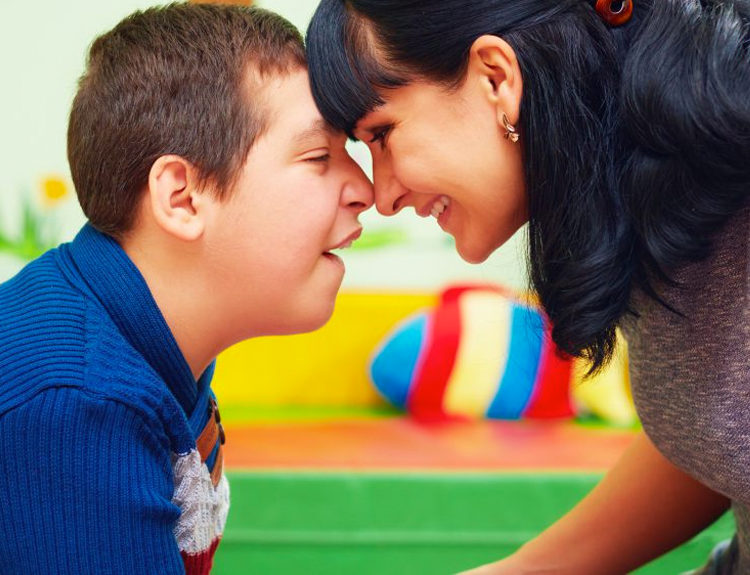In 1979, The Cure released their hit song, Boys Don’t Cry. While its title is obviously untrue, the name of the song still reflects a not-so-uncommon sentiment about male behavior when it comes to sadness and depression. More often than not, it’s a sentiment that stops some men from getting help. Some men tend to mask traits they see as feminine, such as showing emotions or discussing their feelings, and denying they’re depressed. They may downplay the effect of their symptoms and act like they have everything under control. Also, their views of the symptoms of depression affect how they see themselves and others with it1.
In one study, depressed males who abused substances or showed rage were considered by other men to be more masculine and less depressed than those with typical signs of depression. Many of the participants actually found these “manly” displays of depression to be more socially acceptable.
This sort of behavior surrounding depression can have a variety of negative consequences. In fact, despite depression among men being reported at half the rate of women,2 the suicide rate among men is actually four times higher than it is for women. Men are also two to three times more likely to abuse substances than women and have higher rates of alcohol-related deaths.
The Roots of Depression
Depression usually develops from early childhood through early adulthood. A family history of the condition can increase the chances of experiencing it. Sometimes, the cause of depression isn’t clear. Certain situations may lead to depression, such a job loss, a divorce, financial problems, or the death of a loved one.
Without treatment, the sufferer’s feelings may worsen and erode their physical and mental well-being. Lower testosterone levels or chemical imbalances in the brain can occur. Stress or illnesses can increase.3 Depression is among the risk factors for coronary artery disease, heart attacks and strokes. Men generally experience higher rates of these ailments with earlier onset than women. Suicide has also been linked to mental or emotional conditions, with 30% to 70% of suicide victims suffering from major depression or bipolar disorders.4
Signs of Depression in Men
The signs of depression in men can be obvious or sometimes show up in indirect ways. Addiction or other self-destructive behaviors are among the “silent” symptoms. Men with depression sometimes ignore or dismiss these and other signs thinking they aren’t associated with the condition.
The following symptoms are common in both genders5:
- Feelings of sadness, hopelessness, or emptiness
- Low energy
- Oversleeping or having trouble sleeping
- Loss of interest in people or activities
- High anxiety levels
- Problems focusing
- Weight gain or loss
- Loss of appetite
- Decreased sex drive
- Lack of hygiene, such as shaving or showering regularly
- Suicidal thoughts
How to Cope
Though males experience many of the same symptoms as females, they handle depression differently6. Hormones, brain chemistry, life experiences, and cultural expectations for behavior can affect how each gender copes. Among the healthy ways to cope with depression are:
- Setting goals and prioritizing tasks
- Managing stress through meditation, mindfulness, or other relaxation methods
- Doing enjoyable activities, such as biking, hiking, or fishing
- Eating well
- Taking breaks
- Getting at least seven to nine hours of sleep
- Writing in a journal
- Talking about your feeling with a friend or loved one
- Learning more about depression
Through treatment and support, it’s possible to survive and thrive with depression.
When More Help is Needed
When depression lingers for several days or weeks and creeps into or impairs other parts of your life, it’s a sign of a serious condition. You may lack control over your feelings, but that doesn’t mean you’ve failed. You don’t have to carry the burden alone. With a proper diagnosis, including any underlying addiction issues, you can feel better. Seeking to improve your condition shows that you’re taking charge — it’s a sign of strength.
If a friend or loved one is dealing with depression, tell him you care about him and are worried about his safety and well-being. There are many ways to help someone with depression.
When you seek treatment, you may find it easier to talk about how your symptoms affect you, as opposed to revealing deeper thoughts about the possible causes of your condition. You can say things like “I often wake up in the middle of the night” or “I’m drinking more than I used to.” Talking about the impact on you will help your doctor or therapist draw out and determine the possible underlying causes of your depression and find the right treatment to relieve your symptoms.
If you or someone you know is struggling with depression, contact us today. We offer screening and treatment, along with tele-mental health and other support services. For more immediate assistance, call our 24-hour Crisis Hotline: (518) 483-3261 or (518) 891-5535.


 Previous Post
Previous Post


